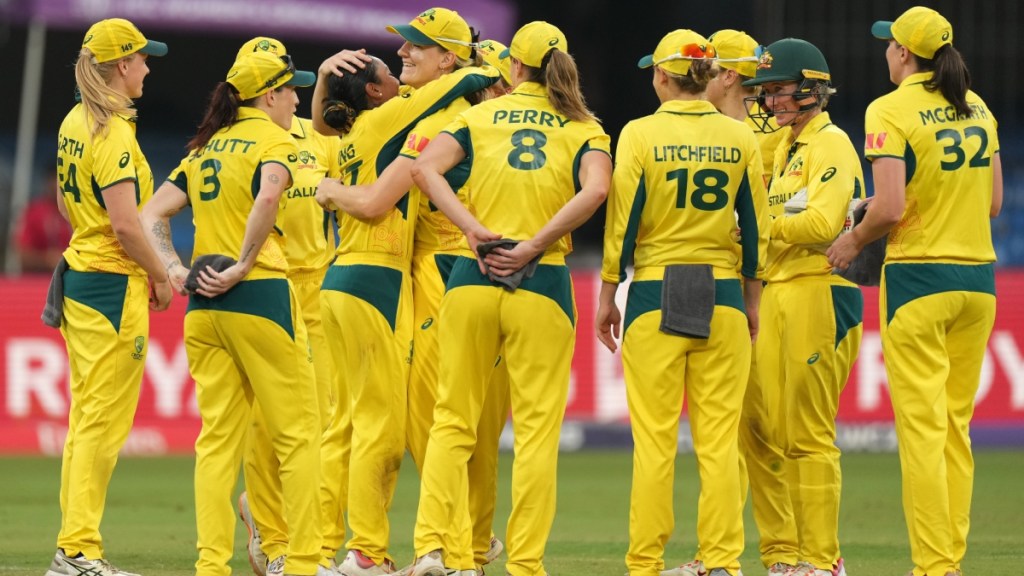Incident that should have shaken us all
What should have been a leisurely walk by two Australian cricketers after their recent World Cup win turned into a painful reminder that for women, safety is still a gamble. In India, even a simple morning walk can turn into a nightmare.
A man on a motorcycle, later identified as Aqeel Khan, approached them and touched them inappropriately before speeding away. Within hours, the police tracked him down. He was a local man with a prior criminal record. The arrest came quickly, but the statements came even faster. And then came the usual spin.
Officials called it “a stray incident,” as if molestation were just a passing drizzle instead of the monsoon that keeps flooding this country year after year.
Facts we are choosing to ignore
Statistics don’t whisper anymore. They scream.
And here’s what that really means:
In 2023, the National Crime Records Bureau recorded 4,48,211 crimes against women, a jump from 4,45,256 in 2022 and 4,28,278 in 2021. That’s roughly 1,200 cases every single day, and that’s only what got reported.
Nearly one in five are domestic cruelty, with 1,33,676 cases under Section 498A of the IPC at a rate of 19.7 per lakh.
Almost one in seven are kidnapping or abduction, with 88,605 cases at a rate of 13.1 per lakh. About one in eight are sexual assaults meant to “outrage modesty,” totalling 83,891 cases at a rate of 12.4 per lakh. And rape accounts for 29,670 cases at a rate of 4.4 per lakh.
Dowry deaths stand at 6,156 cases (0.9 per lakh), abetment to suicide at 4,825 cases (0.7 per lakh), and insults to modesty at 8,823 cases (1.3 per lakh).
The overall charge-sheet rate in these cases across the country is 77.6 percent
Behind every number is a woman who wasn’t safe. Not in her home, not on her way to college, not on the street, not even while visiting a city known for its “hospitality.”
Yet, after every assault and every outrage, we hear the same lines again: “Not all men.” “Don’t generalize.” “It’s just one case.”
The social media disease
The reaction online was as predictable as it was disappointing. Half the people blamed “bad elements” from one community. The rest argued that the issue was being exaggerated because the accused’s name happened to be Aqeel Khan. Some shouted conspiracy. Others said, “Don’t defame the country over one man.”
The problem isn’t what people said. It’s what they refused to say. Two women were molested. That’s the only fact that should matter.
But we are a country obsessed with labels. If the accused belongs to one religion, the outrage burns hot. If he doesn’t, silence. If the crime happens in a state ruled by the opposition, the noise is deafening. If it happens under the ruling party, suddenly everyone wants “due process.”
This hypocrisy is why nothing ever changes. When nationalism is too fragile to face the truth and ego is too inflated to admit rot, people end up defending the indefensible.
Endless cycle of shameful events
India has lived through too many of these public molestations. And sadly, there will be more.
The timeline of shame is long and relentless.
2017, Bengaluru: women groped and harassed on New Year’s Eve in crowded streets.
2018, Mumbai’s Wankhede Stadium: a woman molested during an IPL match.
2020, Gargi College, Delhi: a mob entered a college fest and assaulted students.
2023, Delhi: a tourist groped during Holi while people watched and filmed.
2025, Bengaluru: harassment reported inside Chinnaswamy Stadium during an IPL game.
2025, Hyderabad: police caught nearly 500 men misbehaving during Bonalu and Muharram celebrations.
These are not exceptions. They are the pattern. Men hiding behind crowds, alcohol, or “festival spirit,” using noise and chaos as a cover for predation.
Silence of authority
When the authorities responded to the Indore incident, all they offered were diplomatic, polished lines. “Deeply condemnable.” “Isolated incident.” “Safety protocols to be reviewed.”
No one asked why international players were allowed to walk without security. No one questioned why streets in broad daylight remain unsafe even in so-called model cities. Admitting fault would mean accepting that we failed at something as basic as protecting women.
When those in power treat sexual assault like a minor inconvenience for their image, they don’t just fail women. They fail decency itself.
The real India nobody wants to talk about
Every woman in this country, every single one, has a story. A crowded bus. A tuition class. A marketplace. A temple queue. A stadium. A sidewalk.
Some escaped. Others didn’t.
But the moment someone speaks about it, she is told she’s “anti-national,” “anti-men,” or “doing it for attention.” Women here don’t just face harassment in the real world. They face another wave of it online when they try to speak out.
Instead of silencing the guilty, we silence the survivors. Protecting reputation has become more important than protecting women.
The mirror we keep avoiding
A country that dreams of hosting the Olympics and calls itself a “global leader” cannot even guarantee a woman the right to walk freely without fear.
Every time we call such acts “stray,” we give permission for the next one to happen. Every time we turn a woman’s trauma into political ammunition, we lose another piece of our humanity.
This isn’t about religion or politics. It’s about men, about entitlement, about the belief that women exist to be controlled or consumed. It’s about a culture that rewards silence and mocks courage.
Until we stop hiding behind flags and faith, until we name this problem for what it is, nothing will change.
Closing note
Two cricketers came to India to play the sport they love. They’ll leave with a memory they never deserved.
And somewhere tonight, another woman is walking home, hoping she doesn’t become the next headline.

